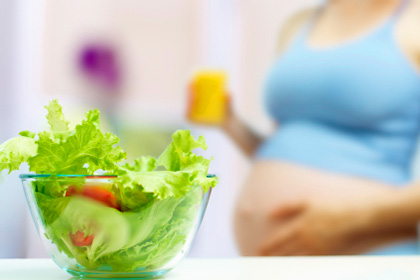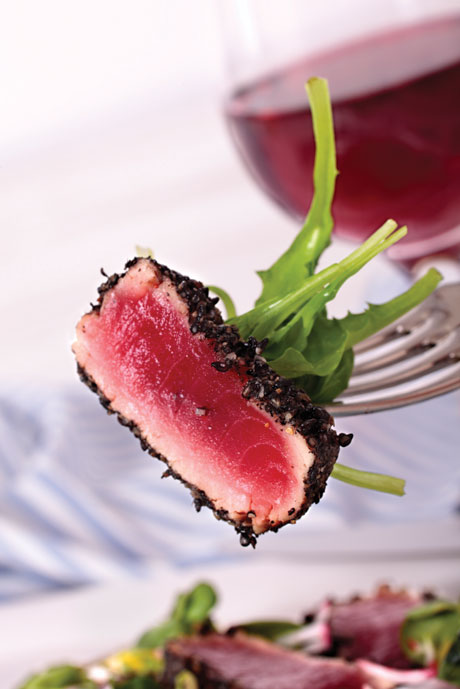 If you’re an expectant or nursing mom, chances are everyone has been eager to offer advice about what you shouldn’t eat or drink. Some of these suggestions seem to conflict with each other; others, you’re certain, date back from your grandmother’s era. So how do you make the right choices? Here are some guidelines to help you make informed, intelligent decisions — with your doctor’s help, of course!
If you’re an expectant or nursing mom, chances are everyone has been eager to offer advice about what you shouldn’t eat or drink. Some of these suggestions seem to conflict with each other; others, you’re certain, date back from your grandmother’s era. So how do you make the right choices? Here are some guidelines to help you make informed, intelligent decisions — with your doctor’s help, of course!
Red, red wine and pregnancy
By now, most women know that drinking alcohol during pregnancy can cause serious problems. But in a 2009 study, the Centers for Disease Control and Prevention (CDC) found that one in eight pregnant women still drink. Even more surprising, it’s not the young or uneducated tossing off a shot or two; women ages 34 to 44 who are college graduates are most likely to imbibe.
Dr. Susan Harvey of Seattle Obstetrics and Gynecology sees pregnant women drinking all the time. “Maybe they have been told that half a glass is OK,” she says, “but that half-glass can lead to another.”
Expectant women who think ingesting a little alcohol is just “not a big deal” also baffle the doctor. “Women are afraid of taking Tylenol, when drinking alcohol is what should scare them.” Alcohol is a known “teratogen,” the doctor points out, meaning it can disturb fetal development. In addition, she notes, “There is no data indicating that any level of alcohol is really safe in pregnancy.”
The March of Dimes and the CDC both advise against any alcohol consumption. Bottom line: Before you take that drink, talk to your doctor.
What’s the rule for breastfeeding moms? The American Academy of Pediatrics says the occasional small drink is fine. It does recommend that women minimize the risks by waiting two hours before pumping or feeding.
Raw and undercooked foods
You’ve probably been told to avoid soft cheeses (such as ricotta, Brie and feta) and to cook hot dogs or lunch meat until piping hot. That’s because doctors worry about listeriosis, a potentially fatal infection caused by the bacteria that can grow in such foods.
But you may be surprised to learn that other foods can pose problems. Uncooked party dips, for example, are risky (think “blue cheese dip”). Refrigerated meat spreads and ready-to-eat chilled foods like potato salad are problematic, too. And that crumbly, uncooked cheese on top of your burrito could well be Cotija or queso fresco, fresh Mexican cheeses made from unpasteurized milk, which need to be off your menu.
Pregnant and nursing moms should also avoid raw milk cheese and unpasteurized fruit smoothies. Even soft-serve frozen yogurt and ice cream made from pasteurized milk should be avoided, because of concerns that the machines used to dispense them may not be sterilized and could be breeding grounds for listeria.
“Unpasteurized foods and drinks concern me a lot,” says Donna Johnson, associate professor in the School of Public Health at the University of Washington. Johnson, who teaches students about maternal and infant nutrition, says the potential consequences of listeriosis can be devastating.
In addition, during pregnancy, “raw” is not a good thing — at least in proteins. The FDA estimates that salmonella in raw eggs causes 142,000 illnesses per year. Foods such as Caesar salad dressing, hollandaise sauce and unbaked cookie dough often contain raw eggs.
A parasite sometimes found in raw or undercooked meat can cause toxoplasmosis, a serious infection that can result in miscarriage, stillbirth or problems in a surviving child, according to the CDC. “Women have a far greater risk of getting toxoplasmosis from raw meat than scooping the cat litter,” says Harvey.
Drinking caffeine during pregnancy
Although we know that caffeine crosses the placenta, evidence about whether it has harmful effects “goes back and forth,” according to Dr. Jonathan Cook at Evergreen Women’s Care, P.L.L.C.
Two well-known studies from 2008 reached different conclusions, with one (in the American Journal of Obstetrics and Gynecology) finding that 200 milligrams or more of caffeine per day increased the risk of miscarriage in the first trimester, while another study (in Epidemiology) found no such link.
Because the data is unclear, Harvey takes the safe route and suggests pregnant women avoid coffee during the first trimester. Evidence shows that 150 to 300 milligrams per day after that is usually fine, she says.
For breastfeeding moms, the American Academy of Pediatrics says as much as 300 mg. (about 12–16 ounces of brewed coffee) is OK. But while relatively little caffeine makes it into breast milk, a baby’s liver can’t break caffeine down; lactating moms should cut back if it appears to be affecting their baby’s sleep. Chocolate, tea and “energy drinks” can also pack a caffeine wallop. (See “What’s the buzz?” below, for help figuring out the caffeine in your favorite cuppa or treat.)
If you drink tea or herbal products, Johnson raises another concern: Some “safe” herbs can cause problems. According to the National Institutes of Health, certain types of chamomile can cause uterine contractions and miscarriage. Johnson recommends talking to your doctor about any tea or herbal products before consuming them.
 Mercury, toxins and fish
Mercury, toxins and fish
Fish is a great low-fat protein, but mercury and other toxins that can be found in fish and seafood are a concern. Shark, swordfish, mackerel, tilefish and tuna steaks are known to concentrate toxins and should be avoided completely, says Cook. In addition, limit canned tuna (no more than 12 ounces a week), especially albacore and white (no more than 6 ounces a week). Smoked salmon must be canned or cooked, not refrigerated. And the FDA recommends limiting even “approved” fish and seafood to no more than 12 ounces per week if you are pregnant or nursing.
Ultimately, says Cook, “balance is what matters.” Talk to your doctor and know the basics of what to avoid, so you can (try to!) relax and enjoy this exciting time.
Kathryn Russell Selk lives, works and writes in Seattle with her husband, 8-year-old Kiernan, 3-year-old Kallison, two cats and many books. She was once accused by a stranger of committing “unborn child abuse” for drinking a cup of coffee while clearly pregnant.
Learn more about your caffeine intake:
According to the USDA, 8 oz. of drip coffee usually has 71 mg. of caffeine, while 1 oz. of espresso has 64 mg., and 12 oz. of cola, about 29 mg. The amount of caffeine in drinks can vary widely, however, by how they are made and other factors. If Starbucks is your fix, you can figure out the caffeine (and calories, fat, etc.) in your particular favorite (including its teas) at starbucks.com/menu/drinks. A great chart with caffeine levels for chocolate (including organic brand Dagoba) is on the Hershey Company’s website.
Learn more about foods to avoid while pregnant
The FDA’s “Safe Eats” website gives information about food handling and other tips for pregnant and nursing moms.
The state Department of Health provides tips on eating fish.
Print your own “Healthy Fish Guide” to fish and seafood that’s safe to eat.
The state Department of Health offers ways to limit the amount of BPA in your breast milk.











